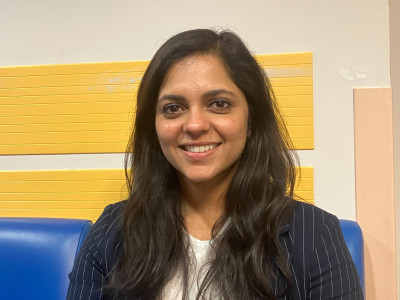
The North London and Central and East London Breast screening service (NLBSS and CELBSS), run by the Royal Free London, serves the residents of 12 local authority areas in London and Hertfordshire.
Women between the age of 50 and 71 are offered a screening appointment once every three years – but according to Mansi Tara, the health promotion lead for the service, women with learning disabilities are 14% less likely to attend their appointment.
Thanks to funding from the Royal Free Charity, a new project is aiming to address this.
Mansi said that part of the problem is identifying those who may need some additional support.
“One of the issues we are trying to resolve is the lack of quality data, said Mansi. “If we don’t know which women have learning disabilities, we aren’t able to provide them with support to attend their appointment. So we worked with information governance and produced a data-sharing agreement that allowed us to access that information in the 12 boroughs we serve.”
Mansi said that once they are aware which residents have a learning disability they can offer a range of adjustments to help overcome barriers that may prevent women with learning disabilities attending their screening appointments.
She said: “We can make a number of adjustments such as contacting their carers and working with them, organising a pre-visit so the women feel much less stress and anxiety – they know what to expect when they come for their appointment. We show them the machine – newer machines are much more pleasant than they used to be so this might help feel more comfortable. We also look at whether they need help with transport.
“We can make the appointment longer and make sure their appointment time is a round number such as 4pm – it can be very stressful for someone with a learning disability if it's 4.13pm for example. And they can bring a family member or friend.”
Mansi said the team are also working with women with learning disabilities who can provide peer support to those worried about their appointments.
She also added that there are other benefits the project could bring.
“Women who have had a positive breast screening appointment because of the support we have provided, have engaged with other health appointments that they were neglecting,” she said. “So that’s another huge benefit.”
Naomi Gilder from Enfield is one of the breast screening service's clients. She said being able to take her carer Sarah with her was vital in helping her understand what would happen during her appointment.
Naomi said: "At first I didn't understand what it was about but Sarah was able to translate, to talk me through it all. I felt happy and relaxed after that. I explained my situation. It was important for her to come with me for the appointment so I didn't feel scared.
"I would really encourage other people with learning disabilities to attend their appointments. I know it's scary as you might not understand but you can ask someone to come with you like Sarah to help you through it."
Since the project started last year, 327 women with a learning disability have been contacted, with 52 of those attending their appointment. Of those, one person was diagnosed with breast cancer and has been receiving treatment.
Top image: Mansi Tara, breast screening health promotion lead.
Bottom image: Naomi Gilder (right) with her carer Sarah.
 Translate
Translate